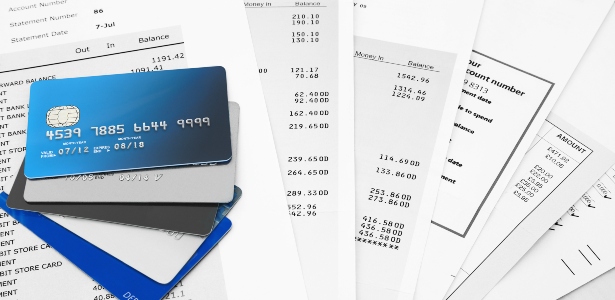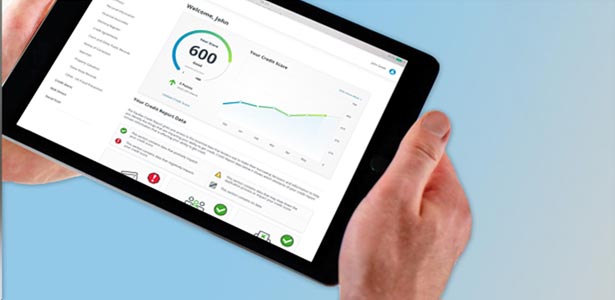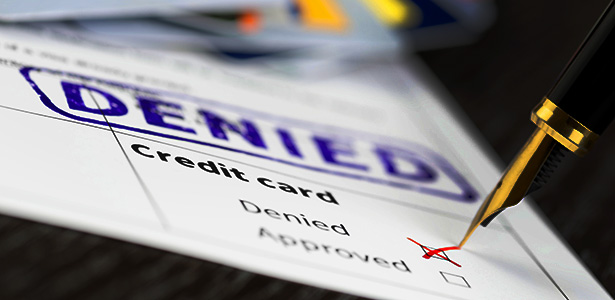In partnership with
Compare Personal Loans
Use our personal loan comparison tool to find the right deal for you and discover low-interest personal loans with ease.
Personal loan comparison that doesn’t affect your credit score

and many more
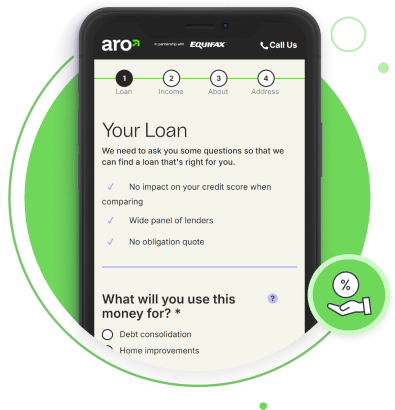
Personal loan comparison
Use our personal loan comparison tool to find the right deal for you and discover low-interest personal loans with ease.
What is a personal loan?
A personal loan is an amount of money that can be borrowed from banks, credit unions, or lenders to use for personal purposes. The borrowed amount will need to be repaid over a set period, typically with interest.

What can personal loans be used for?
Personal loans are typically used for large, one-off purchases, but can generally be used for almost anything. However, it’s always a good idea to check the terms of the loan before you apply. Common uses of personal loans include:
Paying for a wedding
Home renovations
Holiday funds
Debt consolidation
Unexpected bills
Costs will also vary between individuals depending on their personal circumstances and financial history. For example, if you have a low credit score, lenders are likely to apply a higher interest rate to your loan.
Which type of personal loan would work best for you?
If you want to apply for a personal loan, many different types are available on the market. Our Marketplace tool lets you compare personal loans for different purposes. These include loan rates for debt consolidation, home improvements, vehicles, holidays, weddings, and more.
Loans generally fit into two categories: secured loans and unsecured loans. It’s important to understand the difference between the two before you decide which to go for. You should consider your circumstance and how a secured or unsecured loan would fit into it.
Secured Loans
Unsecured Loans
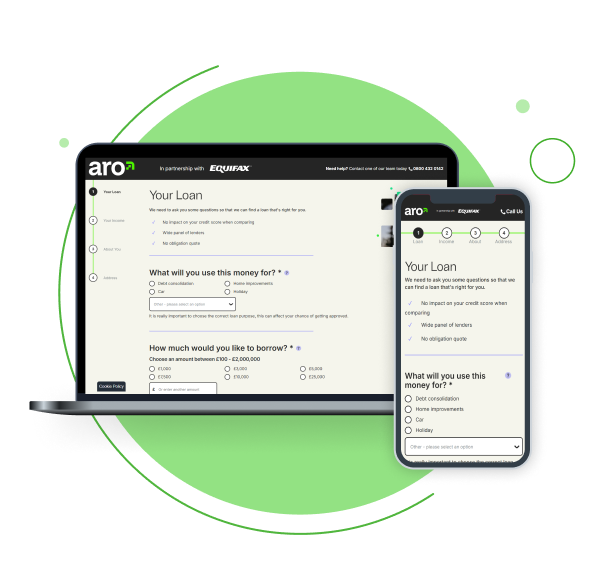
Personal loans for bad credit
It is possible to get a personal loan with bad credit but keep in mind that you may have fewer lenders to choose from, or you may need to take on a higher interest rate.
Comparing personal loans with our handy tool is a good way to scope out your options. If you’re concerned, there are lots of ways to improve your credit score. These methods vary from making full repayments on time to registering on the electoral roll.
Pros and cons of personal loans
Before comparing personal loans, weigh up the pros and cons to decide whether it’s the right option for you.
Advantages of personal loans
No set use
Within reason, personal loans can be used for whatever you like, giving you flexibility around how you use the money.
Flexibility
Depending on your credit score, you can choose how much to borrow and how long you would like to repay it for.
Debt consolidation
Personal loans can be used to pay off other debts that you may have. You may find it easier to pay one lender back rather than numerous creditors. However, you should think carefully about taking out more loans. If you are finding it difficult to keep up with payments, the problem will likely continue. There are places where you can seek support if you need it.
Fixed rates
Unlike credit cards, interest rates on personal loans are often fixed, so you will know ahead of time how much you will be paying each month.
Building credit score
By keeping up with monthly payments, you can prove yourself to be responsible with money and build your credit score.
Speed
You will likely be able to access the money quickly after being approved.
Disadvantages of credit cards
Commitment
Similar to personal loans, you will need to keep up with monthly payments, so you should consider whether your income is likely to change during your repayment period.
Potential penalties
You may be subject to fees or penalties if you cannot keep up with payments, or make payments late. This can also impact your credit score.
Related Content
Frequently asked questions
Find out more about different types of interest rates.
Securing a loan against an asset reduces the risk. As a result, secured loans often have lower interest rates. They often have higher borrowing limits and longer repayment periods than unsecured loans.
Like personal loans, business loans fall into the categories of secured or unsecured.Secured business loans get held against the business’ assets, such as property or stock, while unsecured loans don’t need any security or assets.
Lenders favour businesses with higher turnover and a longer period of trading history when it comes to unsecured loans. They may also need a personal guarantee which will consider the business director’s net worth.
Some business loans have a fixed period for repayment and fixed monthly payments. However, other providers offer more flexible options, offering an overdraft-style arrangement if you can’t make a payment.
If you default on your loan, then the lender can claim the asset as repayment.An unsecured loan doesn't require collateral. However, to compensate for this, they often have higher interest rates.
Or, if you’re looking for a new loan, check the terms carefully if you think you might be in a position to repay ahead of time.
